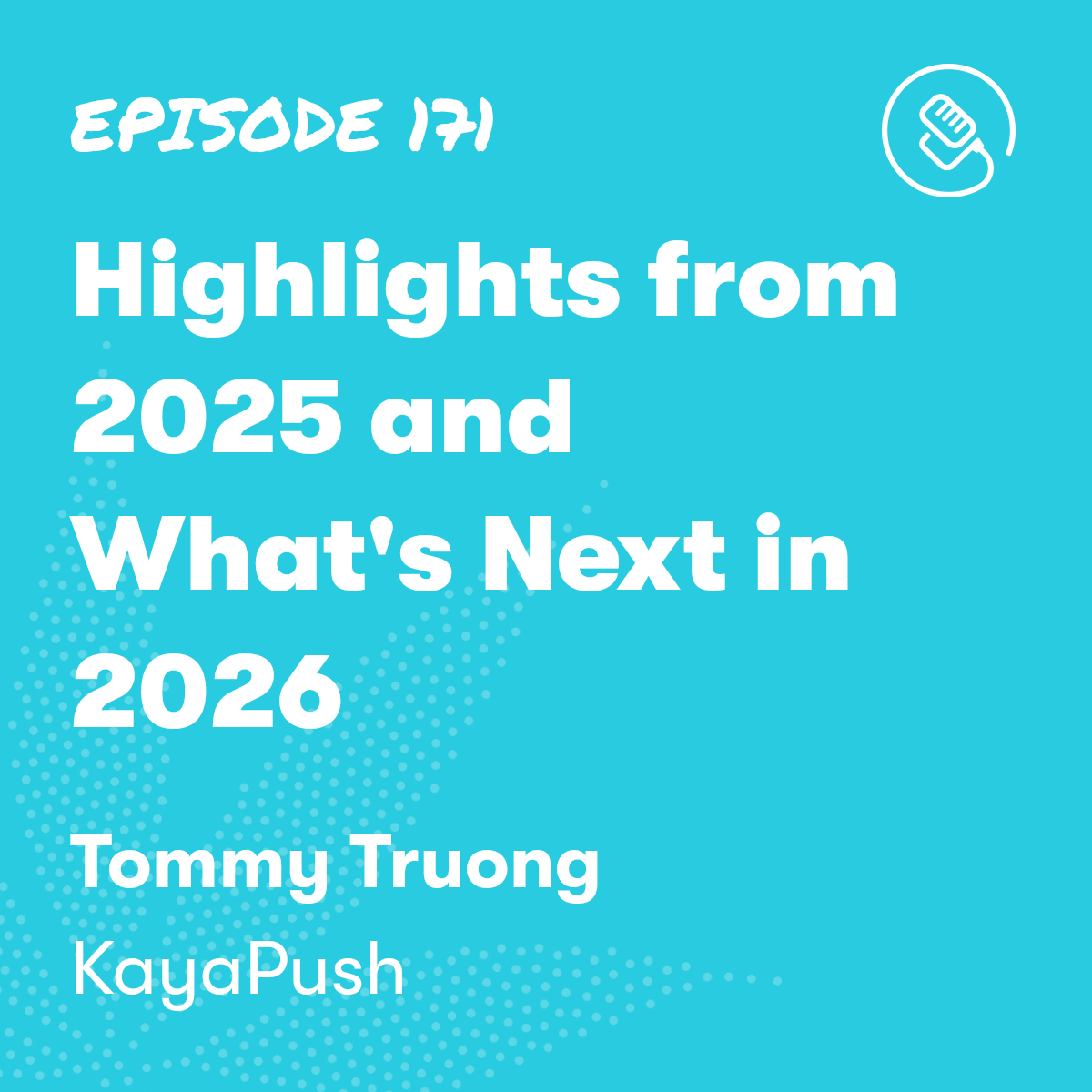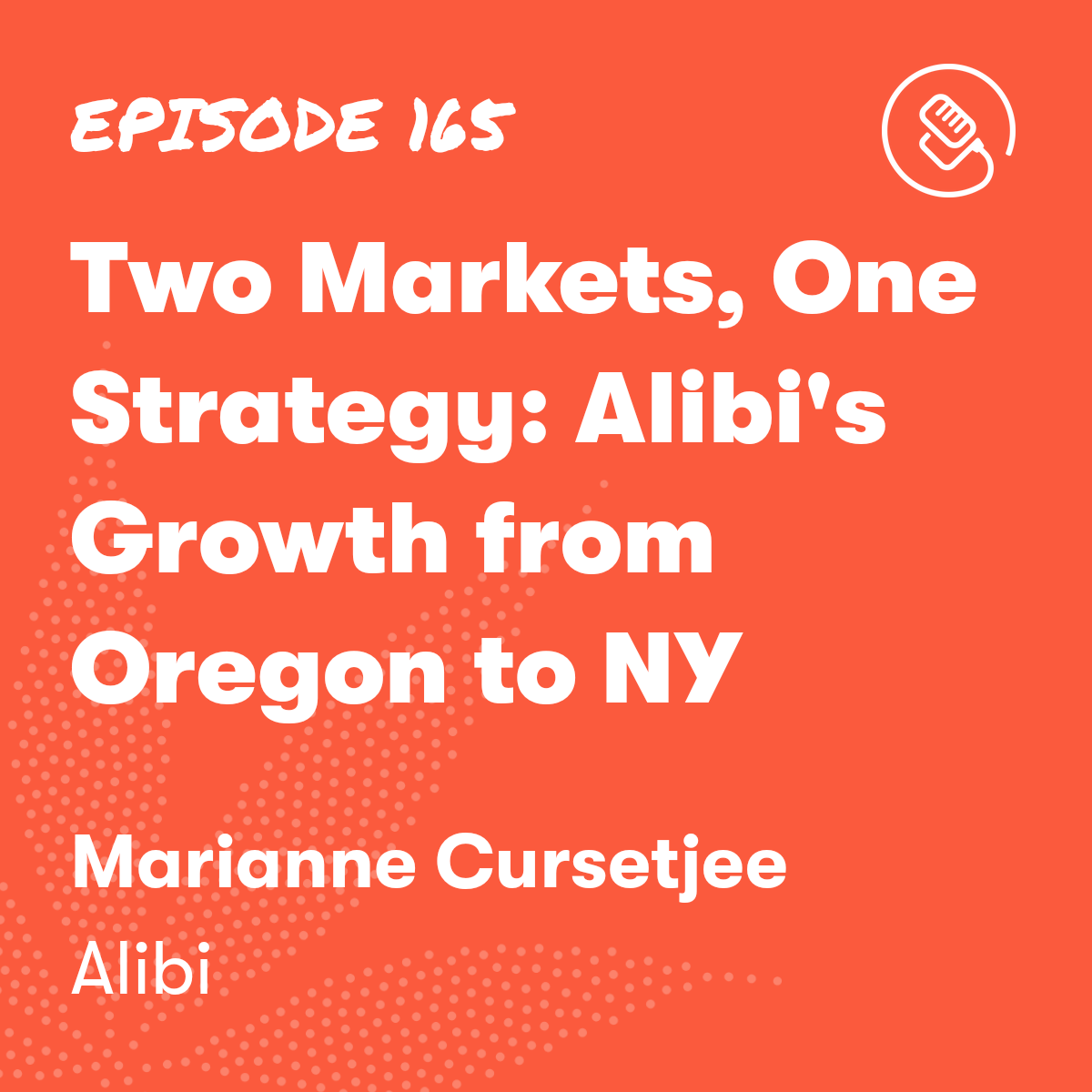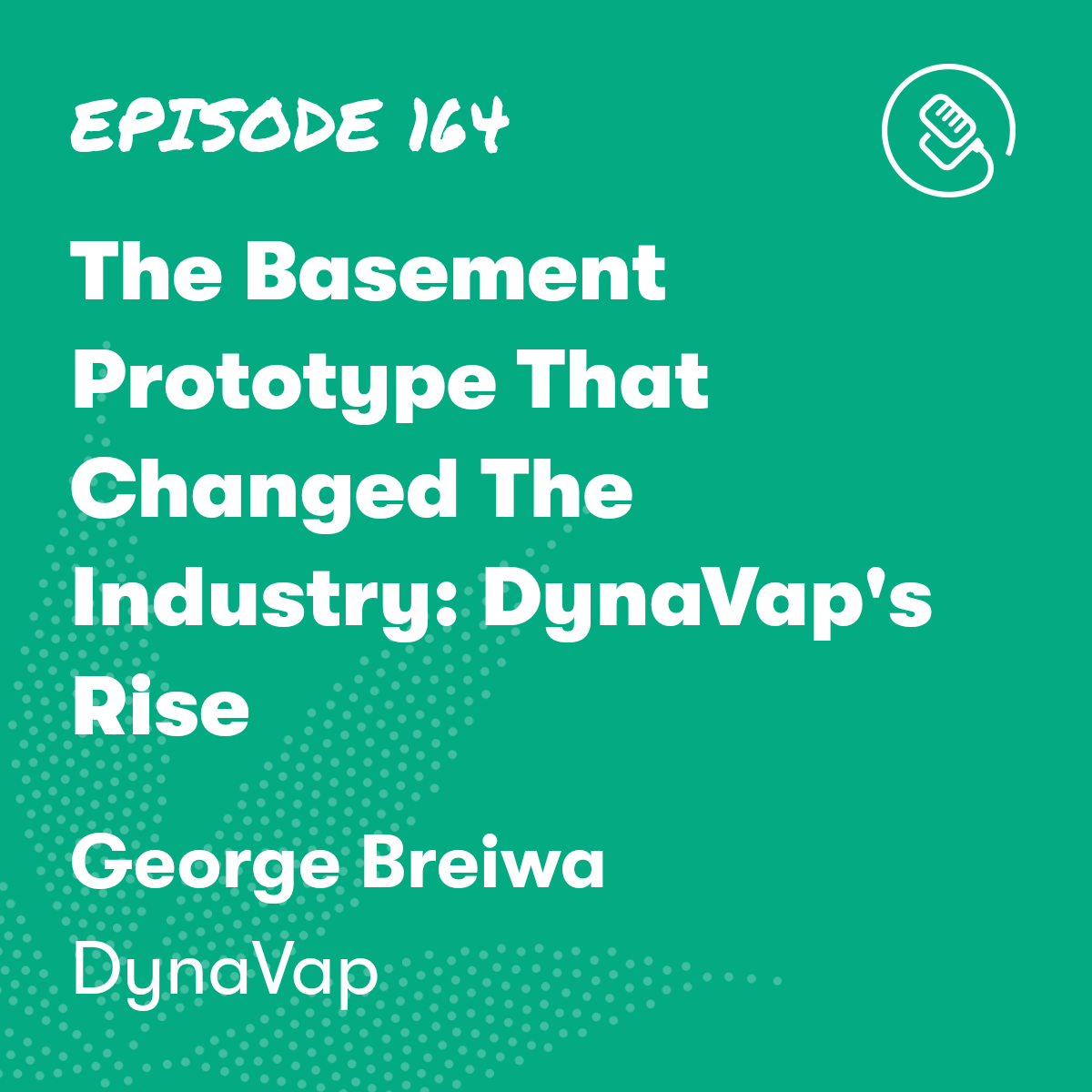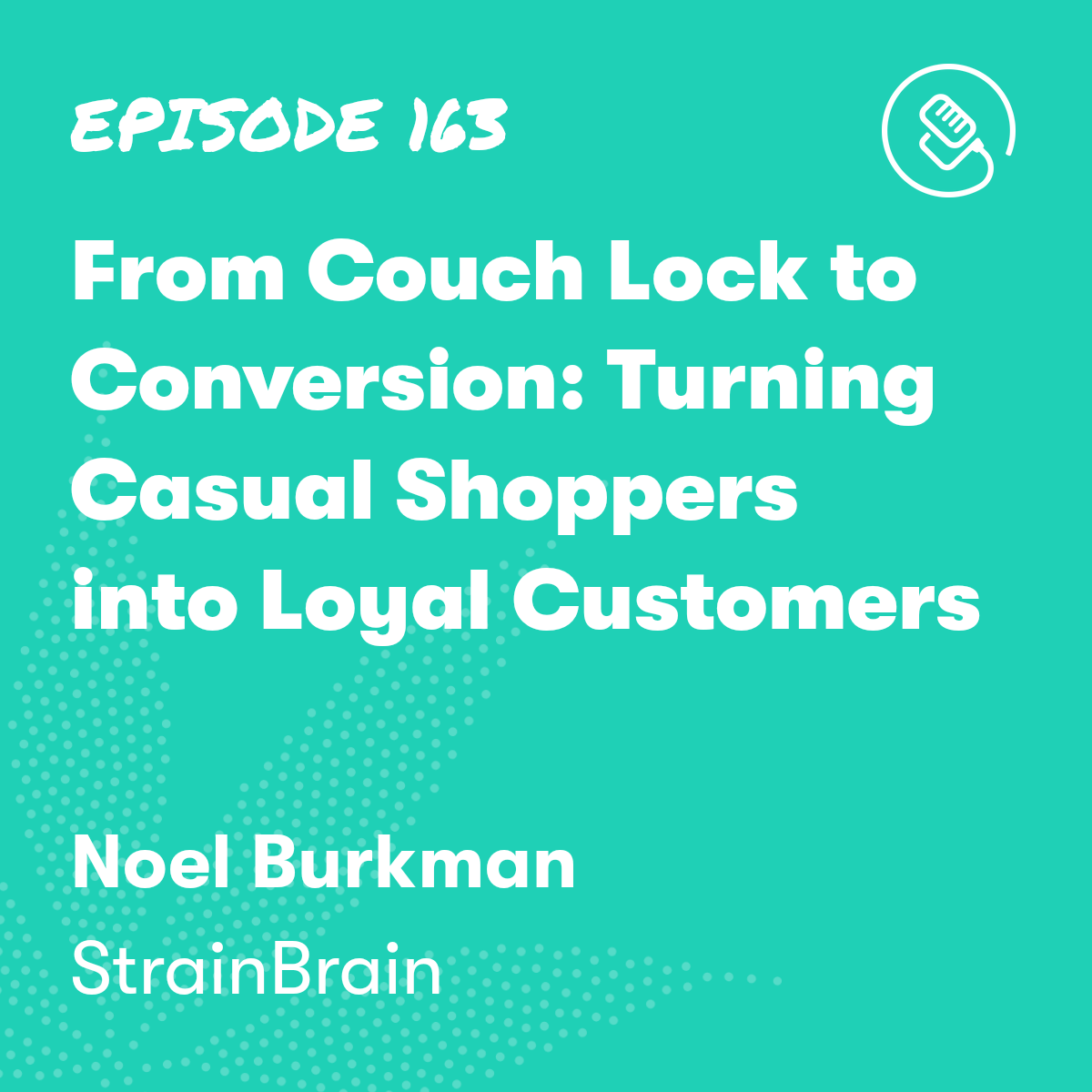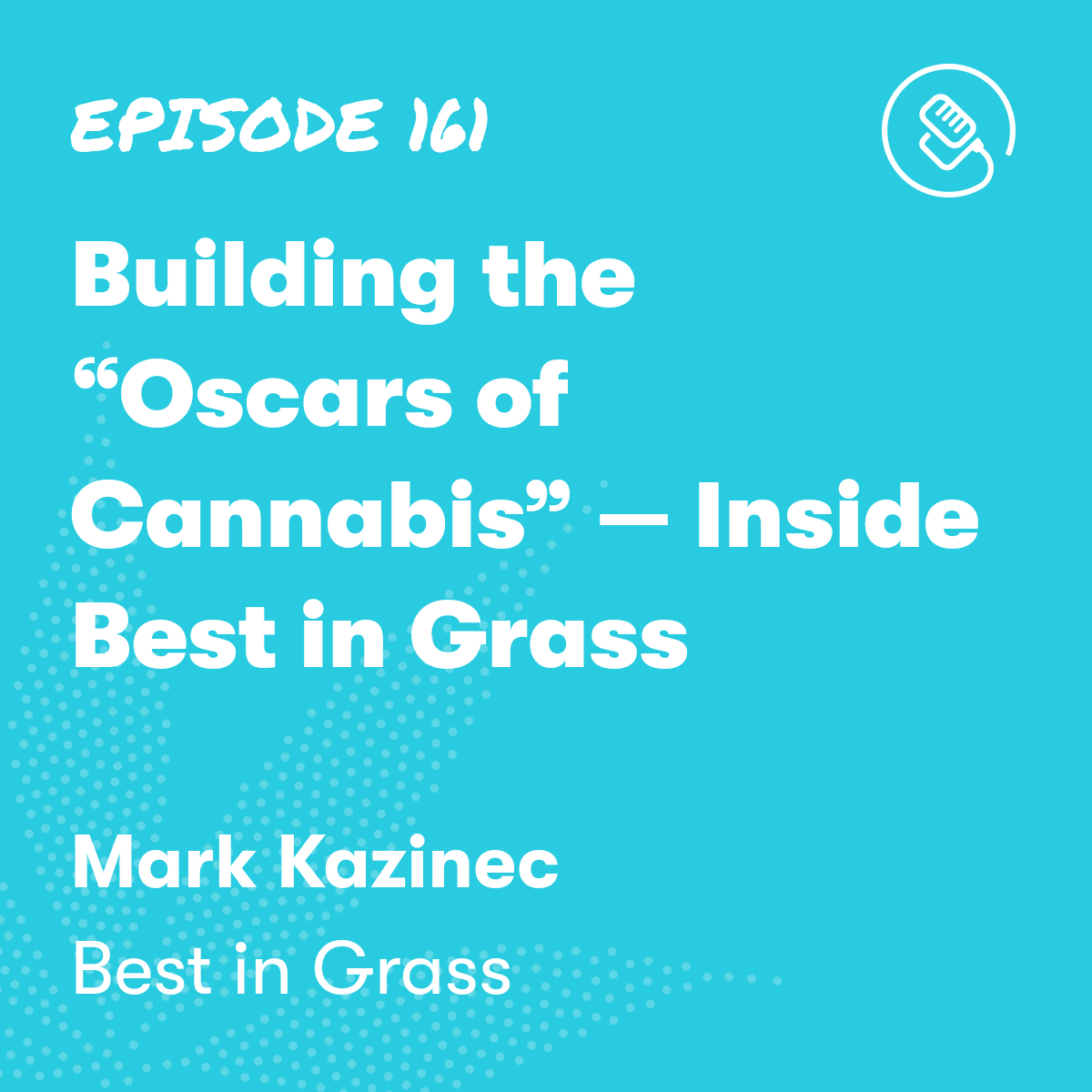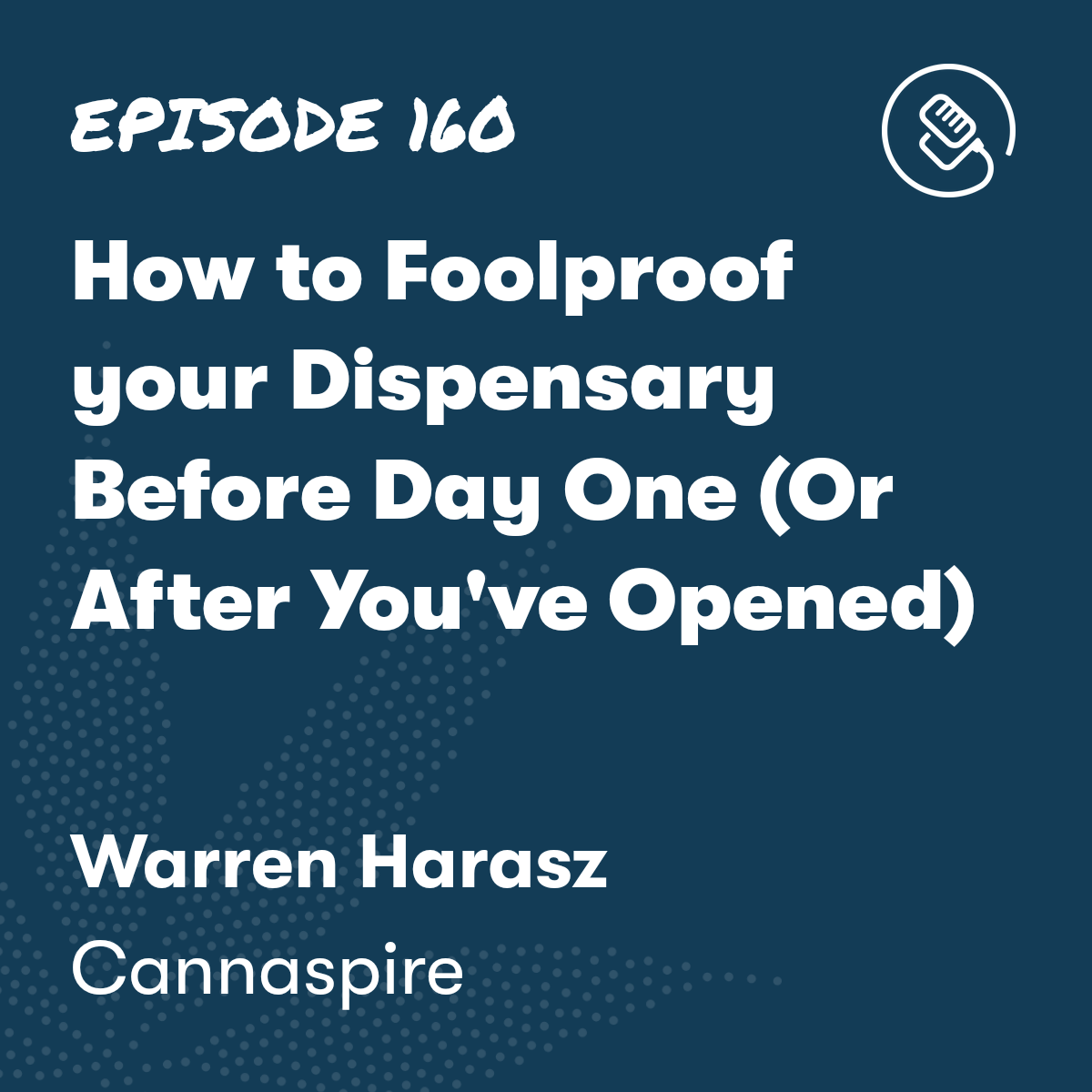

Harnessing Data to Supercharge Your Business Growth
Episode Description

Episode Transcript
Ed Keating: Use all the data available to understand where you should put your precious dollars in terms of inventory, like what should you have on the shelves? I think use the data that you have, all that information you generate, all that work you have to do with metrc to see what's going through your system.
Should help you glean some real insights so that you can make the best decisions and be really profitable, hopefully.
Tom Mulhern: Welcome to the Kaya Cast podcast. I'm your host, Tom Mulhern. And I'm really excited for today's conversation with Ed Keating. Ed Keating is the co-founder of Cannabiz Media, and if you are in the cannabis B2B software industry, you will know Cannabiz Media because they are the go-to source for cannabis data.
They really are this warehouse of data. They have dashboards, they have an email marketing crm. They really offer everything you need to get a grasp on the cannabis industry. And so in my conversation with Ed, we dive into a lot of the reasons that cannabis businesses are in violation of compliance issues.
We talk about the importance of leveraging data to grow your business, grow and scale your business. There's so much data out there and if you're able. Harness that data, you will be able to grow your business. We talk about how he built Cannabiz Media and the partnership he has with his other co-founder and how that kind of jives to create the company they have today.
And they really are the data warehouse for the cannabis industry. I hope you enjoy this conversation with Ed Keating, co-founder of Cannabiz Media.
Tom Mulhern: Ed Keating is a co-founder of Cannabiz Media and oversees the company's data research and government relations efforts. He has spent his career working and advising information companies in the compliance space. Ed has managed product marketing and sales while overseeing complex multi-jurisdictional product clients in the securities, corporate, ucc, safety, environmental and human resource markets at Cannabiz Media. Ed enjoys the challenge of working with regulators across the globe as he and his team gather corporate, financial and license information to track the people, products, and businesses in the cannabis economy. Ed graduated from Hamilton College and received his MBA from the Kellogg School at Northwestern University.
Ed, it is amazing to have you here on the podcast, and I'm just thrilled to have this conversation with you.
Ed Keating: I'm excited to be here.
Tom Mulhern:
Let's start off, tell me a bit about your background and how did you get involved in cannabis?
Ed Keating: I started working in sort of the information publishing industry right outta college. Working for a Fortune 500 publisher that was in the tax and regulatory space, and I kind of never left. I've always worked in companies that track regulated markets, you know, not unlike cannabis, so tax securities law. Nerdy things like uniform, commercial code as well as HR and environmental. So I've always worked in those roles, usually in a product management type role or running those teams to figure out what kind of opportunities there are. For our clients, they tended to be professionals, like on the B2B side.
So we would build tools, books, products to really help people comply. All those rules and regulations. and then in terms of getting into cannabis back in about 2015 remember coming home from work and hearing on the radio. Some state, I think was Florida, was gonna vote on medical marijuana, and then the reporter said something that stuck with me.
Every state has their own rules and regulations and as a guy who was a publisher, that is wonderful because it means there's complexity, it means it's hard to comply and, and therefore it means there's an opportunity. So about 10 months later, I was on the wrong side of a corporate reorg. Uh, my co-founder and I had been talking about cannabis for a while, and it's like, time to start.
I've got free time on my hands and uh, and, we dove in. And that was like June 2015.
Tom Mulhern: And working in cannabis like. One of the things that's really surprised you, cuz there's, from the outside, I still remember when cannabis was legalized up here in Canada and, and it was this huge, media frenzy and what is it gonna be like? And so now that we're both in it, what's something that's really surprised you about working in this industry?
Ed Keating: not surprisingly how normal it is. I mean, we were both at MJ Biz we've been going since 2015. And a lot of the people in the industry are folks just like you and me. You know people who at the show wear blue blazers and golf shirts and khakis. It's like going to any other kind of trade show.
So there's quite a bit of normalcy to, to the market where there are buyers and sellers needing to be brought together. So, kind of a normalcy that, that I've seen. But one of the delights has been, how nice the people are in the industry and, you know, peoplereally do work together.
And I think there's sort of that spirit of we're all in this together. Yes, it's federally illegal, you know, south of your border. and that creates all sorts of headaches. So, you know, let, let's do our best to, to get through this, as an industry. So I, I've appreciated that because I've not really experienced that in other, industries I've been a part of.
Tom Mulhern: You have a background with an MBA in marketing. How did that kind of help prepare you to build Cannabiz Media? Like have you always been an, an entrepreneur starting things or, did that kind of lay that groundwork for you to be able to build what you've built?
Ed Keating: My board in a past role and we live not too far apart, and he is truly the serial entrepreneur. He's the guy who dropped outta college and started building businesses a long time ago and has continued to do it.
So, it's great when you come into a partnership with our two backgrounds because he's the guy who's built this stuff, knows all the. On the ground tactics and you know how to run a business. And I come in with a sort of a Fortune 500 background MBA and and whatnot. So we have very complimentary and very different skill sets.
one thing that I've used consistently since I was in business school is a, type of analysis where, You sort of scan the environment to see what's going on and, and, it goes by a, a couple different names.
Sometimes it's called a pest analysis. So what's happening on the political front, economic, sociocultural and technology, and I've always viewed industries through that lens, and I found it's helpful to sort of look at cannabis through those lenses because we could probably do a whole podcast on just those topics well certainly on the, uh, sociocultural, Hey, things are going great.
Economic not so well. So there's that. And, and then there was other tools obviously to do like industry competitive analysis and that's a lot of the work that we do in Cannabiz Media. So that sort of dovetails really well, at least for me and hopefully for my team too.
Tom Mulhern: It's so good when you can partner with someone. Who is that entrepreneur? I have some friends like that that are always like, oh, let's start this business. Let's do this. And I'm like, okay, let's, let's make it happen. And I'm more of like the technical guy as well, where I'm like, okay, how would, how would we make this work?
It's good to have partnerships like that and really to have different backgrounds and that you bring together. So you and Larry brought your backgrounds and you've built Cannabiz Media. What does it do? Like, tell our listeners, what does Cannabiz Media do?
Ed Keating: The elevator pitch, if you will, is we've built a database of every cannabis and hemp license that we can find really globally.And for those licenses, we track a couple things. One, the companies that own them, if we can find that out, the people who manage them.
And then of course the licenses. And I think now, looked at every license that we had, both active and inactive. We probably have, gosh, 180 to 200,000 licenses, in, in the space. And around all that data, we've wrapped a couple things. First and foremost, we did an email marketing system because a couple years ago, as you may remember, lot of the email platforms wouldn't take cannabis clients and people were getting kicked off MailChimp and other places.
So we essentially built our own to help people reach license holders. In addition, we also built a sales CRM so that users who are trying to, let's say, reach the 11,000, or let's say the 10,000 stores in the us, you know, have a way to figure that out.
So it really helps build into that sales and marketing workflow. And then about 18 months ago, we started, built out essentially a whole p roduct that is all about business intelligence. So people who aren't using it necessarily for marketing and sales, but are trying to figure out how have license counts changed in certain jurisdictions.
What does the data show us about, what kind of real estate investment trust? Are making investments, where has the M & A happened? And as you can imagine it, it's been quite a tale to tell over the last two years, as, as things have changed greatly. One of the most interesting, eye-opening things that I've come across in the last few days is looking at the license counts for stores in Oklahoma. Everybody heard, oh, Oklahoma has a licensed moratorium now no more license. They say as of August 26th. So I looked at the data and it showed that, you know, throughout the year the licenses were declining in Oklahoma. In terms of issuance. September one, they jumped up October, November, December, they issued more licenses for stores, uh, after September one than they had in the first eight months of the year.
That's an interesting story. I don't have an answer as to why, unless, you know,tried to get in before the deadline and they're still working through the backlog, but that's why the date is kind of interesting. So that's sort of an example of, you know, how we use that data to hopefully come up with some insights and some things that may even be just head scratchers.
Tom Mulhern: You guys have a massive database of cannabis licenses and as a data person as well. Where do you source that data from? Because I'm a user, I'm a Cannabiz Media user. I go in there and I'm blown away actually by how much you can access the valuable data, especially for B2B companies.
Where do you get all this data from? I, I remember first logging in and saying, where's this coming from? Like a genie, a magical cannabis genie, or, or, where do you guys source it?
Ed Keating: So what we have learned over the last, almost eight years now is that the regulator or the state, if you will, is the best source of truth because that is where the licenses originate and are managed from. And you know, based on my background of all those alphabet agencies you mentioned at the beginning, Most licenses are really a transaction between the regulated and the regulator, and it's in both their interest for that information to be accurate and available because the regulator wants to make sure that they know who is, you know, involved, let's say in the cannabis business and.
The person who holds a license knows that that is a valuable asset. They don't wanna lose it. So we start with whatever the state has that is our source of truth. We don't go after local licenses that might have been issued by the City of Detroit, let's say, or anything like that. So we begin with that, and then my research team, in to see what information is available and, and how we can supplement that.
We then do phone calls into these licenses, trying to gather more data, things that the state doesn't have, for example. What kinds of points of sales software do you use? What types of extraction do you do if you're an extraction company, what kinda lighting do you have if you, are you doing indoor grow now?
We don't always get answers to those and, and, the further you move away from stores, The harder it is to get the data, but we, we do our best to, to gather all that information and then we supplement it by reaching out to the regulators and asking for more.
So, That's how we build it out and maintain it. And then we visit, I, I think the number now is probably 150 regulators. At least monthly to gather data to keep it fresh. So it's not just getting it once, which isn't hard. You can go find it if you're really patient and diligent and dig into one state and find things.
But to do it 150 regulators at a time definitely takes some some scale. So there's a big team that that helps us get it done and you know, more importantly, keep it up to date.
Tom Mulhern:
Now one of the emails that you guys send that I get every week is all the different license updates. And so the scariest part, even though it doesn't fully affect me, but I see the red, the li someone that's lost a license or gotta fine. So how does Cannabiz Media help businesses stay compliant with your license verification?
And what does that kind of look?
Ed Keating: License Verification is a fascinating and growing area for us because there are challenges there, and there's a high penalty if you're non-compliant. Like in California, back when they were trying to work, down the black market, they said if you're doing business with black market or legacy market company, you're gonna get in trouble.
So we've worked really hard to get good data from the states that's timely, accurate, and comprehensive so that our users can use some of the tools we have to check every license. Like if I'm gonna work with, with Tom's company, does he have a license? Has it expired? You know, is Tom in other states that we should know about?
And for some who, who are really expansive, uh, especially our banking does Tom have any violations that we should know about? So, we work really hard to help people who need to be checking that on a almost a transactional basis. Like on the banking software side, or just from a general info standpoint.
A as you see with the emails that come through with the red at the top, it's just an alert and we include that data and tie it to all the licenses that it affects, so that if you're doing research, let's say before sales call. You can see it there. And some people target that Tom. They wanna see, like if they're in the security business, maybe they wanna find those companies that may be having a hard time doing a good job there and saying, Hey, we could, we could solve some problems for you.
Tom Mulhern: What are some of the main reasons that you see license holders lose compliance or even get fined that they end up at the top of the email in red? What are some of the, the, the overarching reasons that happens?
Ed Keating: There are many. I think right now we're somewhere close to 6,000 violations. The state that shares the most detail is the state of Washington. They're, they're really hyper detailed and thinking back to some of those, it typically has things to do with maybe not tracking inventory or leaving doors open to let people in. Serving, minors. So we've just started to include from the state of Oregon where they do sting operations, where they send in young people to try and buy cannabis and they'll say, we went into 20 stores in this county. Three sold cannabis to minors. Here are the three. So we're gathering that data now, I think on a monthly basis and sharing that as a violation.
I don't know if there's a fine that's involved there, but it's still somebody who's perhaps not doing the best practices. So, you know, that is sort of a, a straightforward reason why people may lose. In other states, it varie s. A lot of times it can actually come down to advertising and marketing violations in Florida.
I remember reading through a whole pile of data we got a few years ago, and it was competitors ratting each other out. Hey, Tru Leaf was at a trade show and they were outside with a table and this is what they were doing, and you weren't supposed to do that. Or somebody had a sign that's too big that, that shared things that Med men wasn't supposed to do.
So those were a couple of the, the run of the mill ones, I would say.
Tom Mulhern: What's the craziest violation that you've seen? Like the, the, the dumbest thing that someone's done to either lose their license or get a fine.
Ed Keating: I, I've got two examples. One is an MSO that essentially bragged to their investor relations audience that, Hey, we have X licenses in this state. Some we own and some that we're, we manage entirely through management agreement and the regulator's like, what are you doing?
The limit is five, you can't have 10. And so they got like a $300,000 fine. So, and a couple people that happened to, but the state's caught on for one.
The other one, and I just came across this and we put it in within the last 30 days. And the state of Rhode Island, a license holder got in some.
They went up to Massachusetts to a trade show, and they won the cup. They won the, cannabis cup or whatever it was. Yay. Look at us. They took pictures. They put it on Instagram and the regulator's like, What are you doing? You took Rhode Island cannabis across state lines to Massachusetts to uh, enter into this contest and, and gave us photographic proof that that's what you did.
There were like 25 samples, 25 grams or whatever it was. You know, they were fined like $10,000. Now maybe the free marketing they got from winning the cup was well worth the $10,000. Maybe there was just a slap on the hand, but it was just kind of astonishing to like be reading through this. And you know, state is sort of writing.
What were you guys thinking? So that's one that certainly jumped out at me. As that probably was not gonna end well for the company that held the license.
Tom Mulhern: Are those regulators like ob, obviously the regulations are different in every state, but how on top of it are the regulators, are they out there looking for violations
Ed Keating: As you've referenced earlier, it's really gonna vary by state. How much enforcement dollars budget do they have to keep track of things and what is really important. For example, lot of states, and we've all seen this in the news, where some fly by night companies are taking. Popular candy type packaging, changing a few things and selling it through, and that's creating a situation where that product is appealing to children.
And in most states, can't. Put your products out that way at all. In, in many cases you could do shapes, no animals, no plants, nothing this identifiable. And more and more we're seeing states focusing on packaging this not see-through. So I, I think they're trying to focus on things like that where there's chance of real harm to people for ingesting.
The other area that seems to be of particular concern is cannabis being diverted? Is it going out to a back door? Is it crossing state lines? A recent study, by Bo Whitney and Whitney Economics showed that there's enough cannabis grown in California, in Oregon to serve the entire United States. So does that mean that the programs in the other 37 states are essentially superfluous ?
So I, I think those are the areas where regulators are trying to focus perhaps a little less so on some of the smaller areas, but you know, every state is their own sovereign nation in a way.
So they get to pick and choose what they wanna focus on.
Tom Mulhern: Looking ahead in the coming years. Is in cannatech, I mean that's kind of a buzzword or whatever, but cannabis technology, what do you kinda see as the, the future of canna tech in the coming years? I mean, we've evolved as an industry so much, but what do you think is on the horizon?
Ed Keating: think we're gonna see some consolidation. We're already seeing many companies in the canna tech space shed workers. Some of it for real reasons, some of it because, well, everybody else is doing it. Now's a chance for us to cut our expenses. So, not everybody's gonna survive this shakeout, dialing back to the report on point of sale.
For the last two years, we found close to I think 80 point of sale vendors in the US. That's a lot, that's more than we need, probably the top five control the lion share, which leaves companies fighting for the scraps of the other 30 to 40%. That's just not sustainable.
The other dynamic I think we're gonna see is sort of a standard analysis of whether are you a feature, a product or a business.
I think there's some canna tech companies that, that may fall more into the feature or product, but they could easily be subsumed by somebody who's built a bigger platform, because think cannabis is gonna go through the same evolution that other industries have where good tech providers are going to try and own a greater share of your day.
They're gonna find out, Tom, what were you doing five minutes before the podcast and five minutes after? And they're gonna try and build out solutions that help you, oh, you need help with banking? How do we incorporate banking into our point of sale? How can we own the transaction? How can we just understand better?
How to save you time, effort, and money so that you're able to do it all in one platform, as opposed to, oh, I'm gonna use X for this, Y for this, Z for that. And oh, let's not forget about A. That's just hard to manage and people just need to be more efficient and effective. So I think that's gonna happen.
As somebody who's spent a lot of time digging through the, the cannabis software stack, like looking at all the companies that actually connect to metrc, there's like four to 500 now and seeing what they do, you start to see which ones are probably gonna stand strong and which ones, you know might not make it through the downturn we're in, right now.
Tom Mulhern: That's a natural state of the, of any industry, not just cannabis as this brand new, all these ideas and everything, and it slowly comes to those solutions that really stand out, that are making people's lives easier, better, saving them time, saving them money, whatever it is.
And if there's five solutions, there can only really be two, actual options at the end of the day that people are gonna use. So it is exciting to see new ideas coming out there. but it really does show like what you guys can provide and what we need to be aware of in this industry as things kind of shape and evolve.
What about for Cannabiz Media? What do you see on the horizon? Any exciting new things coming out in this new year?
Ed Keating: We hope to continue being the database of record for the industry. That's kind of the, the, the term. And that's, you know, when Larry and I started it, we realized, you know, there was no database of record when, when we started, and we still seem to be it for now. So we're, we're gonna keep pushing on that.
In terms of some of the areas that we're looking at and, and building upon, we've made a big effort to identify social equity licenses in the us. We're working with a minority cannabis business association to try and be definitive about what fits in that space. It's not as easy as you think some states.
Incredibly transparent, like Massachusetts shows what kind of people applied for this license? Across a variety of, uh, of, categories. Other states, like Michigan will not share the data saying that we, we will not share because those people paid a lesser fee and we don't wanna publicize that.
So although they said they've issued a lot of licenses. We don't know who they are, but, so we think there's a lot to be done there to share that and raise that visibility because it'll be interesting to see over time how many licenses that is, which states are doing a good job, which ones might be giving it lip service.
Sort of in a related one. And, and this has just been more of a back of the cocktail napkin kind of discussion, is I wanna look at the data around the legacy market.
Cuz if you go searching in New York City for dispensaries near me, only a couple of them are legit. Most of them are not. Those companies still have to buy products from B2B vendors and you know is there an opportunity there? I mean, you'll never be timely, comprehensive, and accurate as we are with licensed business, but I think it could help us maybe have some insight as to where those businesses are.
But two, going back to your compliance questions from before. Is this a legit license? No. so, so we may be able to know, because in looking at some of those New York dispensaries, for example, they have everything that we would put into a Cannabiz Media record. There's often an address, phone number, email, other data as well, what is lacking a license number.
And then the last one also ties to things that we touched on is we wanna do more with our violations data. We have a lot of it, and as I said, I think probably about 6,000 stories now.
And what we haven't done yet is really categorize them sort of to your question like, are they for s ecurity reasons. Are they for selling to a minor? Are they advertising there, there there's a general in looking across states, I think there's like five to 10 reasons why people might get a violation. Well, you know, let's see what we can track because all that data rolls up and, you know might it be interesting to see which MSO has subsidiaries that are always getting into trouble across the country.
I mean, that, that might be useful for, for people to know. We have regulators that use our product too. And for them to have the ability to look across state lines to see what's going on is very valuable. And it, it helps give them insight that, you know, they'd have to make 39 phone calls to do, to try and get that kind of data.
So that, that, that's another area that we think we can do, uh, a good job on by working more with regulators.
Tom Mulhern: I know you're not a dispensary owner yourself, but you are a co-founder of this amazing organization and a business owner. So what is one tip that you would have for a cannabis business owner to grow their business? I mean, you've seen exponential growth in your company.
What's a tip that you would have for them?
Ed Keating: Connecticut just opened their doors yesterday on the retail side and warned medical patients get your product early because there's gonna be, there might be stock outs and, they, put restrictions and limits in from the state level. You can only buy a little, which is kind of smart.
I would say perhaps not surprisingly, use all the data available to understand where you should put your precious dollars in terms of inventory, like what should you have on the shelves? I think use the data that you have, all that information you generate, all that work you have to do with metrc to see what's going through your system.
Should help you glean some real insights so that you can make the best decisions and be really profitable, hopefully.
Tom Mulhern: Ed, how do people connect with you and connect with Cannabiz Media? I know like we said, you have a huge resource section. You've got, we didn't even mention it, but you have a podcast as well, Canna Curio. So how can people connect with what you guys are doing and find out more about you?
Ed Keating: The easiest way to reach us is to go to our website, cannabis.media, and that'll have access to the podcast, all the blog posts, uh, that we write that are data based. It'll of course have information on the product how to subscribe or you know, how to get a demo so that you can see, you know, what it is that you and I have been talking about today.
Tom Mulhern: You know, we'll have to continue this conversation maybe on the, on your podcast we can, we can swap. It was so great having you on the podcast, and I really appreciate you taking this time and I wish you all the best in the coming year with these exciting things you have coming out and yeah.
Thanks again, ed.
Ed Keating: Excellent, Tom, thanks so much. Had a great time.
Tom Mulhern: I want to thank Ed again for his insights and really his encouragement for every cannabis business out there to leverage the data that is available to them to grow their business. Whether you're a dispensary, a cultivator, a B2B software company like Kaya Push, and Cannabiz Media, there is so much data out there that can make you more efficient.
And better at what you do, grow your company, you'll be able to scale your company. You know, every single company is looking for ways to do more with less. And there are automations out there, there's data out there, there's tools that we can use in this industry to be more effective. And so again, I want to thank Ed for just his great, his great thoughts, his great insights, the great conversation.
Go check out Canna Curio podcast. It's on all the podcast platforms same as Kaya Cast, and he's had some really good conversations. His podcast is actually the first cannabis podcast I ever checked out. I just searched for cannabis podcast and found his podcast and there it was. So go check out Cannabiz Media and their website will have links to the bio to their website, to the podcast and everything so you can connect with them. I also wanna encourage you to subscribe to the Kaya Cast podcast. We've got a ton of great interviews coming up.
And the best way to know what's happening in the industry is to hear the stories of people who have grown their businesses similar to Ed's story. And so that's what we're bringing you every single week is conversations with cannabis business owners, Canada's business entrepreneurs. And that's why we're here.
That's we're here to tell those stories, so subscribe in the podcast app, leave a review. This helps us to kind of grow t he recognition around the podcast and again, thanks for listening to the Kaya Cast podcast.
